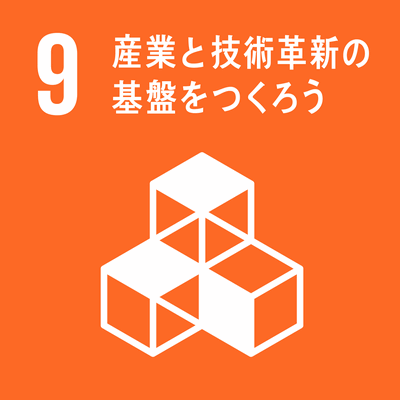シラバス表示
シラバスの詳細な内容を表示します。
→ 閉じる(シラバスの一覧にもどる)
科目の基本情報
| 開講年度 | 2023 年度 | |
|---|---|---|
| 開講区分 | 工学研究科(博士前期課程)創成工学教育科目 | |
| 領域 |
創成工学 |
|
| 受講対象学生 |
大学院(修士課程・博士前期課程・専門職学位課程) : 1年次, 2年次 |
|
| 選択・必修 | 選択 |
|
| 授業科目名 | 機械創成工学特論B | |
| きかいそうせいこうがくとくろんB | ||
| Problem Based Learning in Mechanical Engineering B | ||
| 単位数 | 1 単位 | |
| ナンバリングコード | EN-COMN-5
|
|
| 開放科目 | 非開放科目 | |
| 開講学期 |
前期 機械創成工学特論Aと機械創成工学特論Bは,隔年開講であり,交互にいずれかが開講される。詳しくは掲示板を参照すること。 |
|
| 開講時間 |
水曜日 9, 10時限 開講に関しては,掲示板を参照ください. |
|
| 授業形態 |
対面授業 * 状況により変更される可能性があるので定期的に確認して下さい
「オンライン授業」・・・オンライン会議ツール等を利用して実施する同時双方向型の授業 |
|
| 開講場所 | ||
| 担当教員 | 加藤典彦(工学研究科機械工学専攻),池浦良淳(工学研究科機械工学専攻),丸山直樹(地域イノベーション学研究科) | |
| KATO, Norihiko IKEURA, Ryojun MARUYAMA, Naoki |
||
| SDGsの目標 |
|
|
| 連絡事項 | * 状況により変更される可能性があるので定期的に確認して下さい |
|
学修の目的と方法
| 授業の概要 | 学生自らが能動的に学習する仕組みをもつ教育法であるPBL(Problem-based Learning,問題発見解決型学習)の要素を取り入れた授業を通じて,技術者にとって不可欠な問題発見・解決能力を養う. (Course description/outline) The program cultivates problem-finding and problem-solving skills essential for engineers through classes that incorporate elements of Problem-based Learning (PBL), an educational method that has a mechanism for students to actively learn on their own. |
|---|---|
| 学修の目的 | 社会に出た技術者が実際に遭遇する問題を通して、実践的な問題解決能力が養える。 社会に出た技術者が実際に遭遇する問題へのアプローチを学べる。 社会に出た技術者が実際に遭遇する問題に対するこれまでの知識の応用が学べる。 社会に出た技術者が実際に遭遇する問題をチームで解決する能力が身に着く。 (Learning objectives) Develop practical problem-solving skills through problems that engineers in society actually encounter. Learn approaches to problems actually encountered by engineers who have entered the workforce. Learn how to apply previous knowledge to problems actually encountered by engineers who have entered the workforce. Acquire the ability to work as a team to solve problems encountered by engineers in the real world. |
| 学修の到達目標 | 社会に出た技術者が実際に遭遇する問題を通して、実践的な問題解決能力が養える。 社会に出た技術者が実際に遭遇する問題へのアプローチを学べる。 社会に出た技術者が実際に遭遇する問題に対するこれまでの知識の応用が学べる。 社会に出た技術者が実際に遭遇する問題をチームで解決する能力が身に着く。 (Acheivements) Develop practical problem-solving skills through problems that engineers in society actually encounter. Learn approaches to problems actually encountered by engineers who have entered the workforce. Learn how to apply previous knowledge to problems actually encountered by engineers who have entered the workforce. Acquire the ability to work as a team to solve problems encountered by engineers in the real world. |
| ディプロマ・ポリシー |
|
| 成績評価方法と基準 | 出席、レポート、他 (Grading policies and criteria) Attendance, reports, etc. |
| 授業の方法 | 講義 演習 実験 実習 |
| 授業の特徴 |
問題提示型PBL(事例シナリオ活用含) 問題自己設定型PBL プロジェクト型PBL 実地体験型PBL プレゼンテーション/ディベートを取り入れた授業 グループ学習の要素を加えた授業 |
| 授業改善の工夫 | 企業での実体験に基づいた失敗事例を使って、具体的なイメージを与えながら学習する。 (Ideas for improving classes) The students will learn by using examples of failures based on real-life experiences in companies, giving them concrete images. |
| 教科書 | |
| 参考書 | 各担当教員に訊ねること |
| オフィスアワー | |
| 受講要件 | |
| 予め履修が望ましい科目 | |
| 発展科目 | |
| その他 |
英語対応授業である。 |
授業計画
| MoodleのコースURL |
|---|
| キーワード | メカトロニクス, 制御工学, 伝熱促進 |
|---|---|
| Key Word(s) | Mechatronics, Control engineering, Enhancement of heat transfer |
| 学修内容 | 各教員の指示によって行う.3人の教員により,各3回の授業をおこなう。 ・メカニカルスイッチ(加藤) 第1回 メカニカルスイッチ概説 第2回 失敗事例紹介と課題 第3回 課題発表 ・メカ制御(池浦) 第1回 失敗事例紹介とグループディスカッション 第2回 各グループの発表と現場での対応例の紹介 第3回 失敗の原因の理論的背景と対応策 ・伝熱促進(丸山) 第1回 伝熱促進の理論的考察,実験手法の習得 第2回 伝熱促進実験,データ収集,実験PDCA 第3回 実験成果発表,意見交換 (Course contents) Three lessons will be given by three teachers in charge, each under the direction of a supervisor. Mechanical Switches (Kato) 1) Introduction to mechanical switches 2) Introduction of failure cases and issues 3) Presentation of the assignment Mechanical control (Ikeura) 1) Introduction of failure cases and group discussion 2) Presentation by each group and examples of how to deal with failures in the field 3) Theoretical background of causes of failures and countermeasures Heat transfer Enhancement (Maruyama) 1) Theoretical consideration of heat transfer enhancement, mastering experimental techniques 2) Experiment to heat transfer enhancement, data collection, experimental PDCA 3) Presentation and discussion of experimental results |
| 事前・事後学修の内容 | 事前・事後学習は、各指導教員の指示によって行う. なお、「伝達促進」については、以下の事前・事後学習を行うこと。 第1回 円柱周り流れの伝熱促進に関する基礎知識習得.予備実験データの整理,解析プログラム整理 第2回 実験条件設定.実験データ整理,考察 第3回 発表資料作成,報告書作成 (Contents for pre and post studies) Pre- and post-study shall be conducted under the direction of each faculty advisor. For "heat transfer enhancement," the following pre- and post-study should be conducted. 1) Acquisition of basic knowledge on convective heat transfer enhancement around a cylinder. Analysis of preliminary experiment data, Edit analysis programs 2) Experimental condition setting, experimental data analysis, discussion 3) Preparation of presentation materials and reports. |
| 事前学修の時間:60分/回 事後学修の時間:60分/回 |
